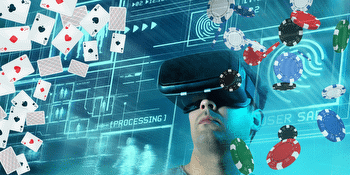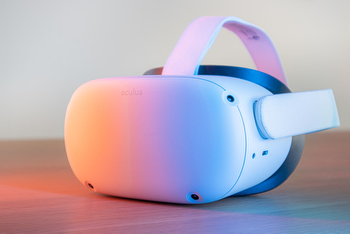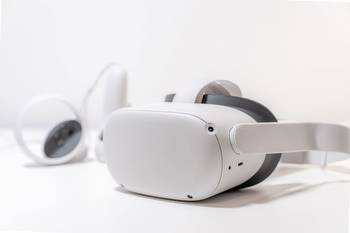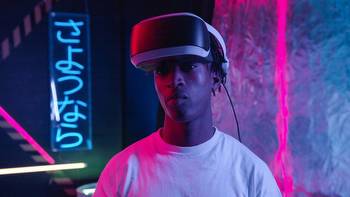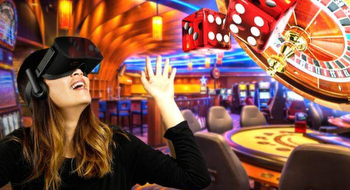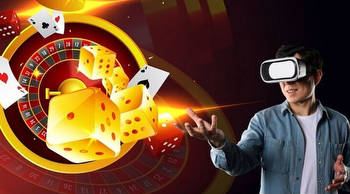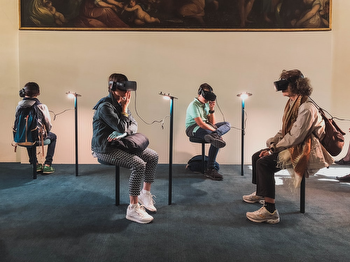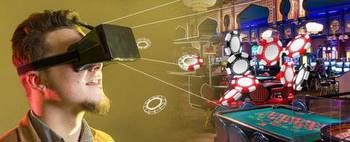How Far Can Virtual Reality Take The Online Gambling Industry?

The gambling world has undergone remarkable changes over the years. Gone are the days when people needed to visit brick-and-mortar casinos to enjoy their favorite games. The emergence and growth of technology have been central to the evolution of the gambling industry. A pivotal moment was the internet boom in the mid-1990s, which set the stage for the rapid growth of online gambling.
In the early days, the choices for online gambling were limited. However, the potential for profit in running an online casino quickly became evident. As a result, the number of virtual casinos began to increase. Today, the online gambling industry is bustling with activity, with new platforms popping up regularly.
To stand out in this crowded market, many online casinos offer attractive bonuses to players. For those looking to maximize their gaming experience, finding the Best Online Casino Bonuses is crucial. These bonuses not only provide more playtime but also increase the chances of winning, making them an essential factor for players choosing where to gamble online. So make sure to explore more about how these bonuses can work in your favor.
For casino operators, staying up-to-date with the latest technology is crucial for success. One of the most exciting developments in recent years is the integration of virtual reality (VR) into online gambling. VR technology, while still relatively new, has already made significant inroads in various sectors, including education and training. The gambling industry is now leveraging VR to attract new players and enhance the gaming experience.
Often associated with science fiction and gaming, virtual reality is a technology that creates a simulated three-dimensional environment, offering an immersive experience that is detached from reality. This immersive experience is made possible through specialized equipment, primarily VR headsets. The quality and features of these headsets vary, often reflected in their price.
Top-tier VR headsets, such as the Oculus Rift, come with a hefty price tag. For online casino enthusiasts looking to dive into VR gaming, owning a headset is essential. Other notable VR headsets include the Samsung Gear VR, Google Cardboard, Google Daydream View, and HTC Vive VR. Leading the VR technology race are companies like Samsung, Google, Facebook, TCL, and HTC.
And of course you can not forget Apple. Apple’s VR headset (Vision Pro) is expected to bring the tech giant’s hallmark of sleek design and user-friendly interfaces to the VR domain. Known for their emphasis on aesthetics and functionality, Apple products often set new standards in technology, and their VR headset is likely to follow suit.
The way VR transports users into alternate realities from their living rooms is fascinating. While VR headsets might look similar in size and shape, the technology they use to display images varies significantly. In essence, VR headsets are advanced display devices that connect to a console or computer to stream video content.
These headsets typically use two LCD screens (one for each eye), along with pixels and strategically placed lenses. The lenses alter the angle of 2D images to create a perception of depth, mimicking how your eyes perceive the real world. A critical feature of VR headsets is their field of view. The wider the field, the more immersive the experience.
A few pioneering gambling sites have already started incorporating VR technology. Though the options remain somewhat limited, the VR casinos that do exist are licensed and offer a credible gaming experience. Industry experts predict a significant rise in VR-based online casinos as more people acquire VR headsets and accessories. By 2024, the VR gambling market is projected to grow from $0.4 billion to a staggering $2.4 billion.
VR casinos aim to attract a diverse crowd, including traditional gamers and individuals. These platforms offer more than just 3D graphics; they provide an authentic casino experience, complete with the ability to walk around the casino floor and interact with other players through live chat. Some online betting sites are also exploring VR to offer unique and engaging betting experiences.
It’s common to confuse augmented reality (AR) with VR. AR adds virtual elements to the real world, whereas VR creates a fully immersive experience in a simulated environment. AR doesn’t require special equipment, as seen in games like Pokémon Go. On the other hand, VR requires headsets and completely immerses the user in a virtual world.
While VR casinos offer numerous advantages, there is a concern that they might lead to increased gambling time and spending, especially among vulnerable groups and younger audiences. This raises the issue of potential gambling addiction, which needs to be addressed responsibly by the industry.
VR technology, though still evolving, has already captivated the hearts of many casino enthusiasts. Industry professionals believe that VR will transform online gambling, offering a level of player interaction and immersion never seen before. VR technology promises to keep slot players engaged with its realistic feel and interactive features.
As the technology becomes more widespread, you can expect a surge in online casinos adopting VR to draw in new players and retain their current base. Software developers are likely to create a wider array of VR casino games to suit different player preferences. As technology continues to progress, the online gambling industry will likely see further innovations. It’s also anticipated that the cost of VR headsets will decrease as the technology becomes more mainstream, making it accessible to a larger audience.
In conclusion, virtual reality is not just a passing trend but a transformative force in the online gambling industry. As it continues to evolve and become more accessible, you can expect VR to redefine the way you experience online gambling, offering a more interactive and immersive experience that goes beyond the screen and into the realm of virtual reality.








